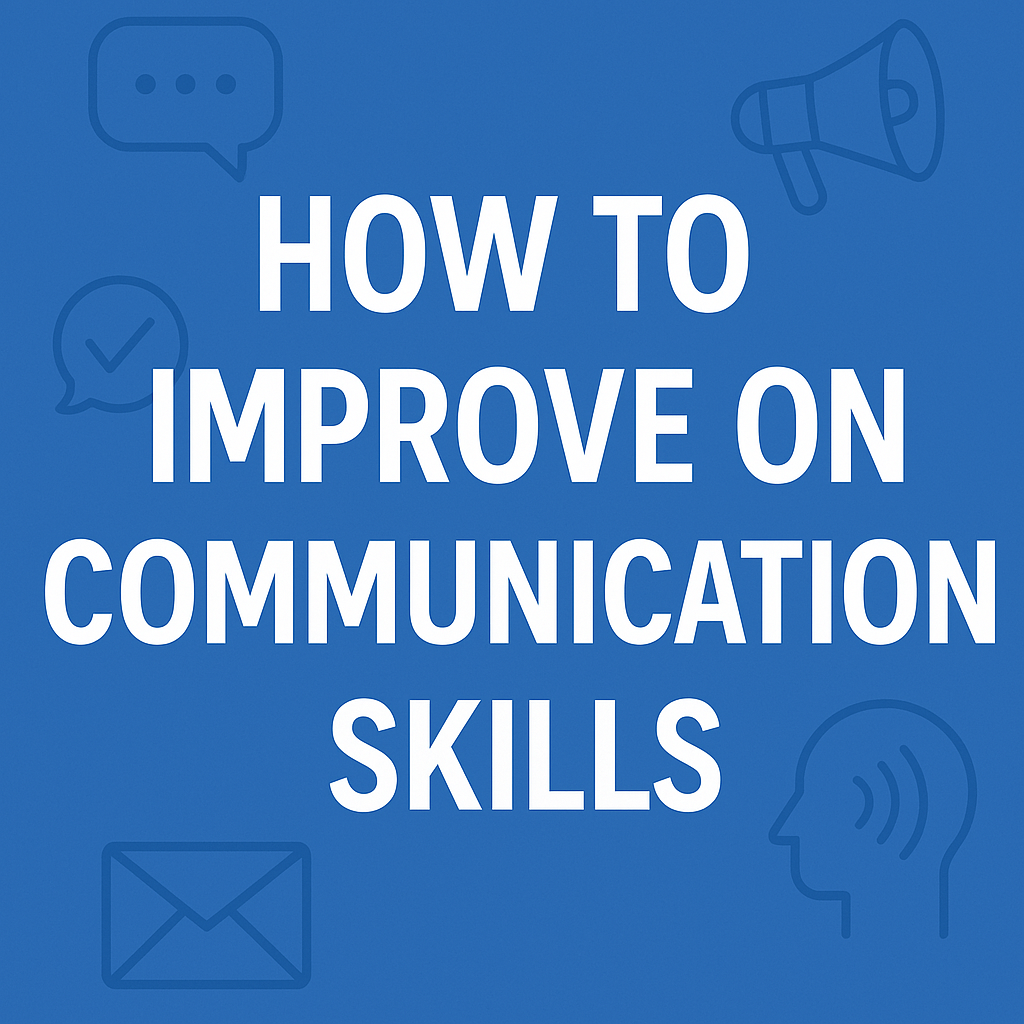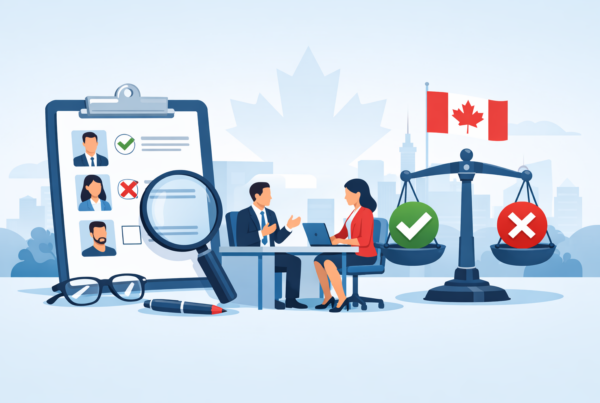12 Proven Tips on How to Improve Communication Skills
Effective communication is crucial in every aspect of life, from personal relationships to professional settings. If you’re searching for ‘how to improve communication skills,’ you’re likely looking for practical tips to convey your thoughts more clearly and build better connections with others. In this article, you’ll discover 12 proven tips to enhance your communication abilities, covering everything from active listening to managing difficult conversations. Let’s dive in.
Want to fast-track your communication success? Let’s uncover what’s holding you back and create a strategy that works. Book a free 15-minute call with me today.
Key Takeaways
- Master the basics of communication, including clarity, active listening, and nonverbal cues to enhance connections in both professional and personal settings.
- Tailor your messages to your audience and practice emotional intelligence to foster trust and understanding during conversations.
- Engage in regular practice and seek feedback to improve your communication skills and become more effective in your interactions.
Understand the Basics of Communication
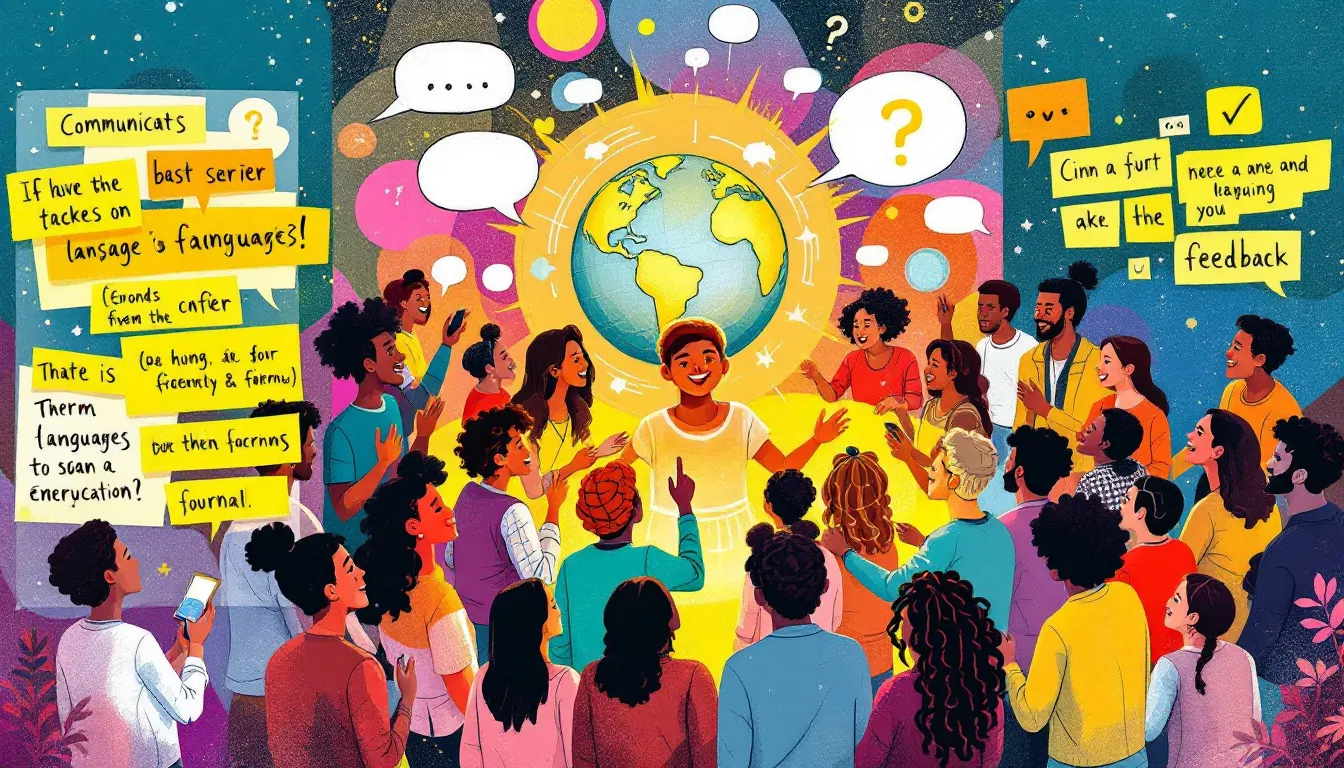
At its core, communication involves the transfer of information through various means, conveying:
- Voice
- Written words
- Visuals
- Non-verbal gestures
- Verbal communication
Understanding these basics is crucial because effective communication skills can be taught and mastered. Good communication skills contribute to a more connected and successful workplace communication by fostering seamless collaboration and trust among team members, as it is understood that these communications skills are essential.
Effective communication isn’t just about talking; it encompasses verbal and non-verbal signals, such as body language and tone. The principles of communication—clarity, active listening, and empathy—create a framework that enhances our ability to convey thoughts clearly and connect with others while communicating effectively. When we communicate, it’s essential that we ensure our message is heard while we hear speaking. This is where effective communications play a vital role.
Mastering these principles significantly enhances interactions in both professional and personal relationships contexts, addressing various challenges, including those a manager might develop in business.
Be Clear and Concise
Clarity and brevity are the cornerstones of effective communication. When you convey your message concisely while covering essential points, you maintain your audience’s interest and ensure they understand your message. This is particularly important in the workplace, where clear communication can differentiate between connected and failing teams.
Using simple, precise language and avoiding complex words and jargon can greatly improve the reader’s comprehension of the text. Structuring your content with bullet points and short paragraphs enhances readability, especially in digital formats, and careful word choice plays a crucial role in this process.
Remember, the goal is to convey your message logically and free of ambiguity to enhance understanding.
Struggling to say more with less? I’ll help you cut through the noise and clarify your message. Let’s talk.
Active Listening Skills
Active listening is more than just hearing words; it involves fully engaging with the speaker, which can help prevent misunderstandings and build trust. One of the key techniques in active listening is to withhold judgment during discussions, creating a safe environment for open communication. This fosters understanding of others’ emotions, improving overall communication effectiveness.
Practicing active listening involves using open-ended questions to encourage deeper conversations and paraphrasing to confirm understanding. It’s important to ask questions and summarize main points to demonstrate understanding and validate the speaker’s feelings. Remaining genuinely curious about the speaker’s perspective can further enhance your active listening skills.
Active listening starts with intentional practice. If you’re ready to upgrade how you connect with others, book a 15-minute coaching call with me.
Another critical aspect of active listening is patience. Allowing the speaker to express their thoughts without interruption shows respect and gives them the space to fully articulate their ideas. This not only improves the quality of the conversation but also strengthens your relationship with the speaker. It is important to listen actively as an active listener to enhance understanding and give your full attention.
Nonverbal Communication

Nonverbal communication is a powerful tool, accounting for 65% of what is conveyed in interactions. This includes aspects like facial expressions, gestures, and eye contact, which can convey emotions without spoken words. Eye contact is particularly fundamental, signaling interest and engagement while maintaining dialogue, as well as nonverbal cues.
Being aware of your body language and ensuring it aligns with your spoken words is crucial for clear communication. Effective nonverbal communication can build trust and rapport, enhancing interpersonal relationships.
Remember, nonverbal communication tips is a two-way process; paying attention to both your own signals and those of another person is essential.
Emotional Intelligence in Communication
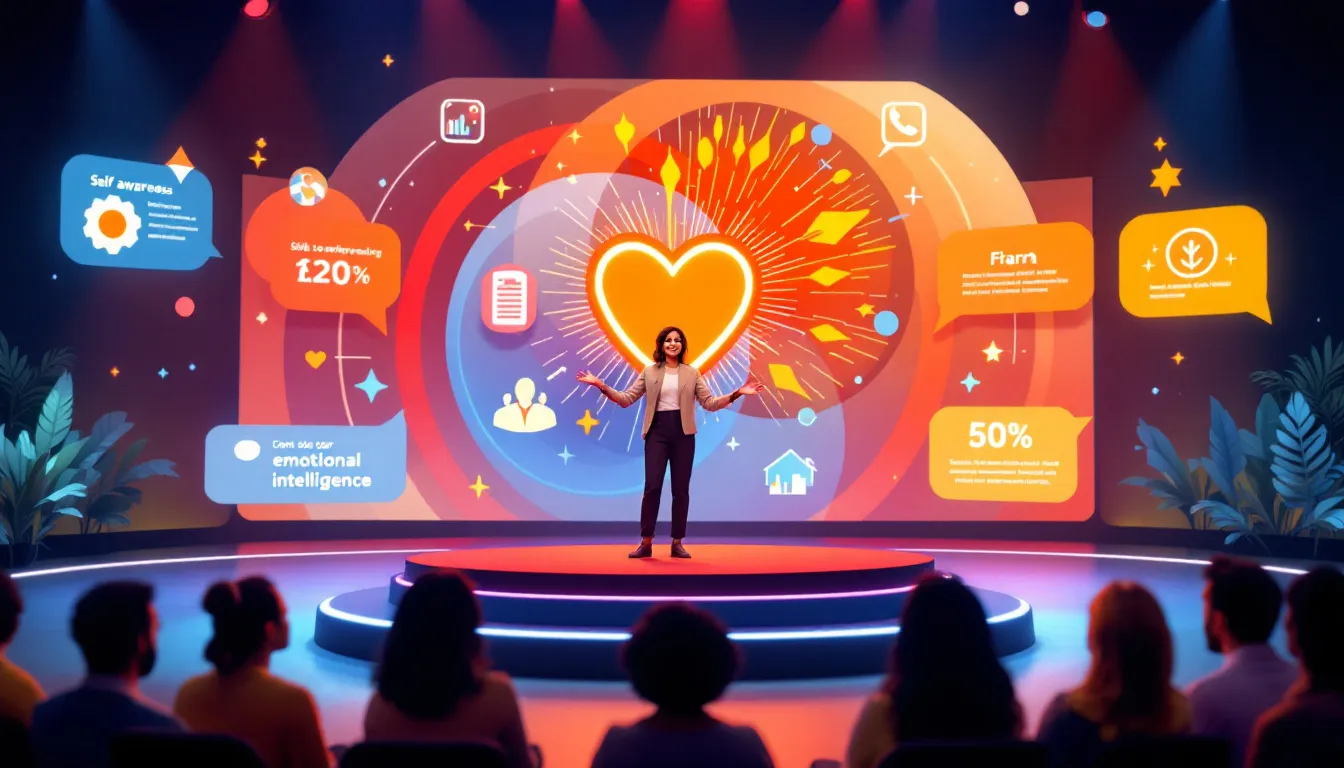
Emotional intelligence in communication involves understanding your emotions and those of others. Self-awareness allows you to express your thoughts and feelings sincerely, which is crucial for connecting with others emotionally. Emotion regulation is also essential for responding thoughtfully during conversations, preventing impulsive reactions.
Acknowledging the other person’s feelings enables more constructive dialogue and fosters trust and openness. Developing emotional intelligence strategies can significantly strengthen interpersonal connections in various contexts, making you a more effective communicator.
Emotionally intelligent communicators lead more powerfully. Let’s build that skill together. Schedule your free call now.
Tailor Your Message to Your Audience
Understanding the distinct needs of different audience groups is key to effective communication. Verifying audience profiles helps in accurately addressing their concerns and needs during communication. Each audience may prioritize different aspects, necessitating a tailored communication approach.
Adapting your communication style according to the audience’s preferences is vital for effective interactions. This involves not just what you say, but how you frame it for the intended audience. Using the appropriate tone based on the audience and context enhances the effectiveness of your message.
Effective Written Communication
Written communication provides a unique advantage as it allows for time to review and serves as a permanent record. Clarifying your writing goal helps the reader understand the intended message more easily. Having someone proofread your work is crucial for catching errors in punctuation, spelling, and grammar. To write effectively, consider these aspects carefully.
The tone of voice in written communication significantly influences how words are perceived. Ensuring your tone matches your intent can create goodwill and trust, making your messages more effective.
Managing Difficult Conversations
Handling difficult conversations gracefully is a vital skill in both professional and personal settings. Emotional regulation is important in maintaining constructive communication, particularly during conflicts. Managing your emotions in a professional setting helps maintain effective communication.
Effective problem-solving during conversations involves brainstorming solutions together with the other party. Empathizing with others and adjusting your attitude positively can make difficult conversations easier. Remember to be mindful of your tone, as it can create goodwill and trust or lead to misunderstanding.
Conflict doesn’t have to be messy. I’ll show you how to navigate tough conversations with calm and confidence. Book a call and let’s unpack your situation.
Feedback and Continuous Improvement
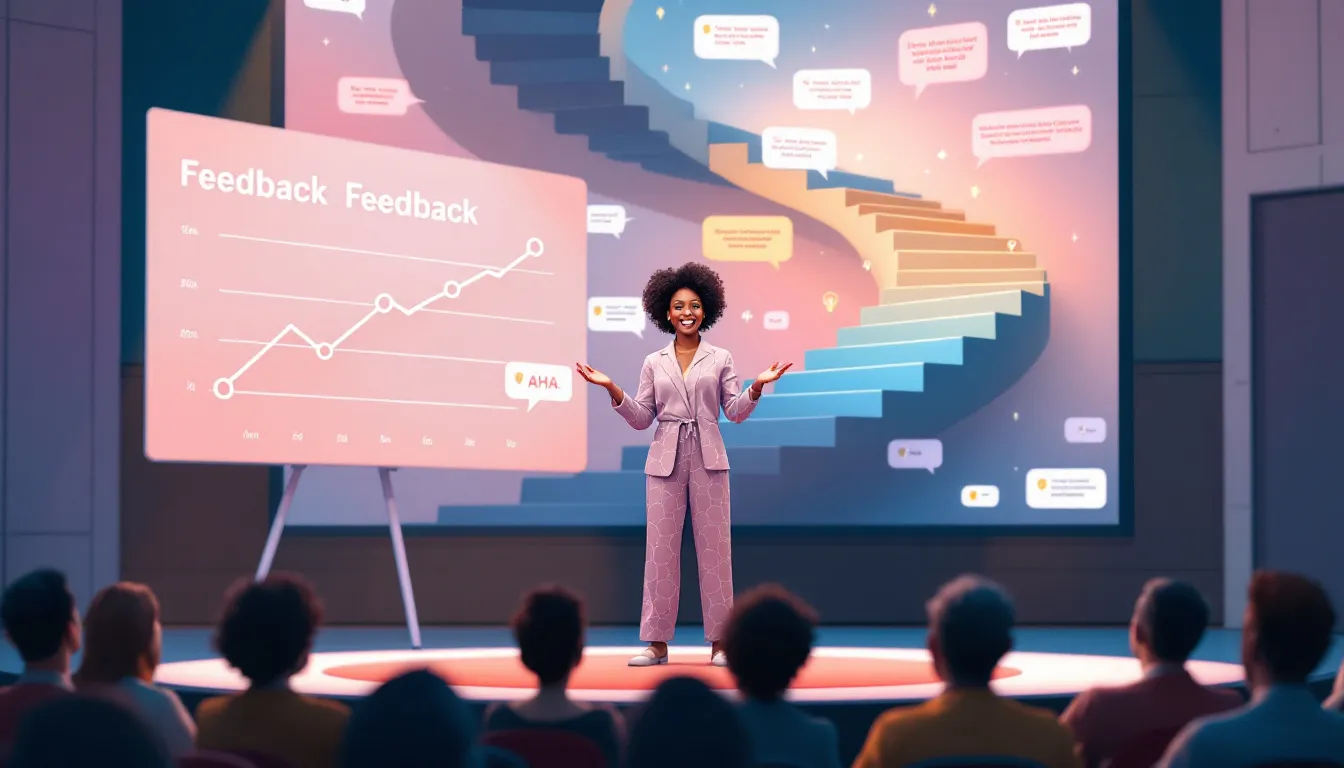
Constructive feedback is fundamental to honing communication skills and fostering interpersonal relationships. Reflect on previous conversations to identify strategies that could lead to more effective communication in the future.
Consistent practice and establishing a daily routine can significantly improve your confidence and effectiveness in communication.
Leveraging Technology for Better Communication

Utilizing technology effectively is crucial to ensure all participants, especially remote ones, feel included in the conversation. Implementing AI in communication can automate repetitive tasks and enhance workflow management. Video conferencing tools can enhance productivity by up to 30% for remote teams.
Using instant messaging platforms facilitates quick discussions and timely information sharing among remote teams. Project management software allows for systematic tracking and alignment of team tasks with organizational goals. Online forms can boost data collection efficiency by 70%, streamlining communication tools processes.
Want to streamline your communication using the right tech? Let’s explore what tools and strategies suit your business. Grab a free 15-minute call here.
Engage and Encourage Participation
Starting conversations with open-ended questions promotes a collaborative atmosphere. Involve team members by asking for their input, and respond thoughtfully to their contributions to make them feel valued. Allowing moments of silence can encourage deeper thinking and may prompt participants to share their responses and insights.
Encouraging physical movement during a meeting can enhance engagement and stimulate creative thinking. Limiting the frequency and duration of meetings shows respect for participants’ time and can enhance engagement.
Practice Makes Perfect
Regular practice and reflection support developing effective communication skills. One method to improve communication skills is to record yourself communicating. After recording, reviewing the communication helps identify improvement areas.
Creating a communication to-do list can be a daily practice to improve communication skills. Remember, consistent practice is key to success in developing any skill.
Practice is powerful—but guidance makes it faster. Let’s sharpen your skills together. Schedule your 15-minute strategy call now.
Summary
Mastering communication skills is a journey that requires understanding the basics, being clear and concise, practicing active listening, and leveraging nonverbal communication. Emotional intelligence, tailoring messages to your audience, and effective written communication are equally important.
Managing difficult conversations, seeking feedback, leveraging technology, engaging participation, and practicing regularly are essential strategies to becoming an effective communicator. Implement these tips, and you’ll find yourself navigating conversations with ease and confidence.
You’ve got the tips—now it’s time for tailored support. If you’re ready to level up your communication, book your free 15-minute call with me today.
Frequently Asked Questions
How can I improve my active listening skills?
To truly enhance your active listening skills, focus on withholding judgment, asking open-ended questions, and paraphrasing for clarity. Embrace patience in conversations, and watch your communication flourish!
What are some tips for clear and concise communication?
To communicate clearly and concisely, use simple language and avoid jargon. Organize your content with bullet points to enhance clarity and ensure your message is direct and unambiguous!
How does nonverbal communication impact interactions?
Nonverbal communication plays a crucial role in interactions, accounting for 65% of our conveyed messages through facial expressions and body language. Embracing this can enhance your engagement and understanding in every conversation!
Why is emotional intelligence important in communication?
Emotional intelligence is crucial in communication as it enables you to gauge and respond to emotions effectively, fostering deeper connections and more productive conversations. Embrace it to enhance your interactions and strengthen your relationships!
How can technology enhance communication?
Technology can significantly enhance communication by fostering inclusivity and boosting productivity through tools like video conferencing and instant messaging. Embrace these innovations to connect better and collaborate more effectively!
